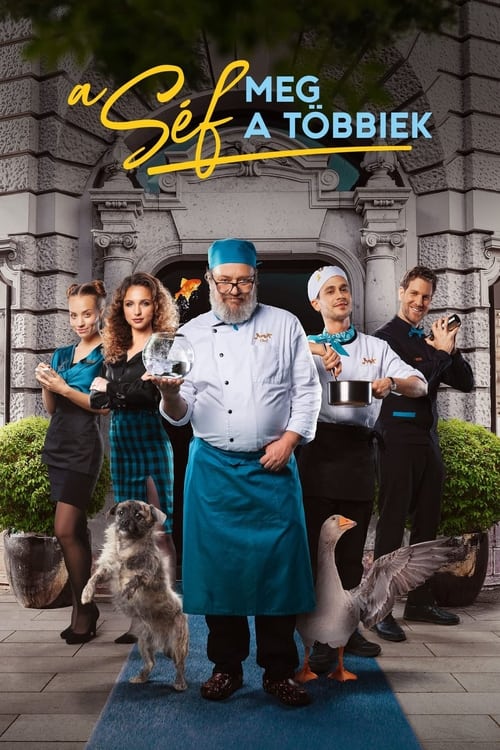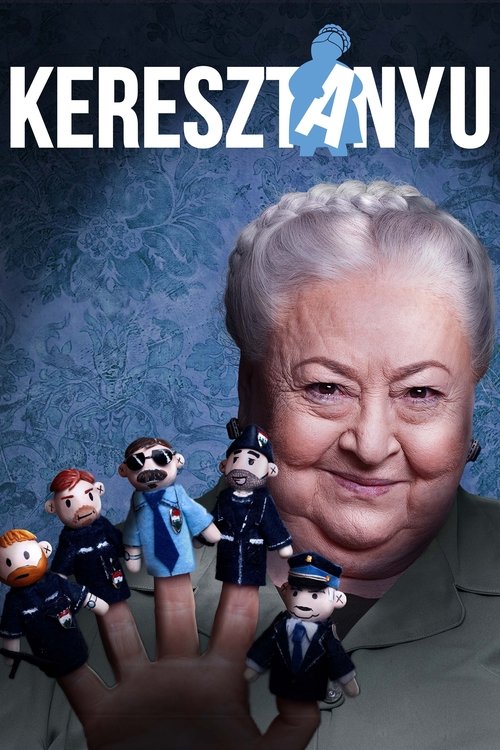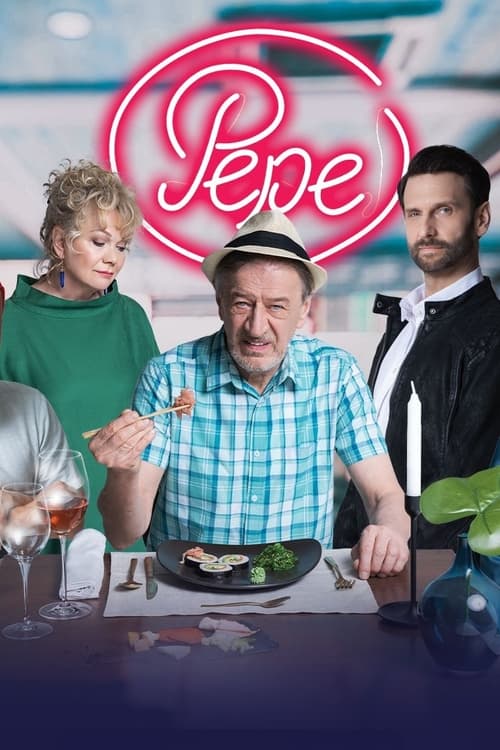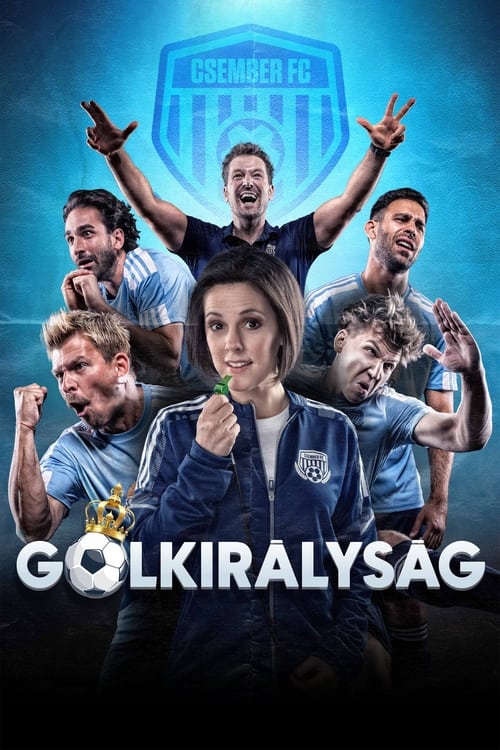
Ask Your Own Question
What is the plot?
In the first episode of "A Séf meg a többiek," we are introduced to the main character, a passionate chef named András, who runs a small but popular restaurant in Budapest. The episode opens with András in the kitchen, meticulously preparing a special dish for a food critic who is set to visit that evening. His dedication to his craft is evident as he interacts with his staff, including his sous-chef, László, who admires András but also feels overshadowed by his talent.
As the evening progresses, the restaurant fills with eager patrons. Tension builds as András becomes increasingly anxious about the critic's arrival. He instructs his team to maintain high standards, emphasizing the importance of the night for their reputation. The critic finally arrives, and András personally serves him the special dish. The critic's initial reaction is positive, but as the meal continues, he becomes more critical, pointing out minor flaws. This feedback deeply affects András, who feels the weight of his dreams resting on this review.
The next day, András receives the critic's review, which is mixed but leans towards the negative. He is devastated, feeling that he has let his team down. László tries to console him, suggesting they take the feedback constructively, but András is consumed by self-doubt. He decides to revamp the menu entirely, believing that a complete overhaul will win back the critic's favor and attract more customers.
In the following scenes, András experiments with new recipes, often clashing with László, who is more cautious and prefers to refine existing dishes rather than start from scratch. Their disagreements escalate, revealing László's frustration with András's impulsive decisions. Meanwhile, the restaurant's financial situation becomes precarious as customer numbers dwindle due to the negative review.
As András continues to push for change, he encounters a rival chef, Katalin, who runs a trendy new restaurant across town. Katalin's success only fuels András's determination to prove himself. He decides to challenge her to a cook-off, believing that a public showdown will restore his reputation. László is hesitant about this plan, fearing it will only lead to more stress and potential failure.
The cook-off is set, and the restaurant buzzes with excitement. András and László work tirelessly to prepare for the event, but the pressure mounts as the date approaches. On the day of the cook-off, the atmosphere is electric. András is visibly nervous, but he channels his anxiety into his cooking. The competition is fierce, with both chefs showcasing their best dishes.
During the cook-off, András struggles with self-doubt as he watches Katalin's confident performance. He begins to second-guess his choices, but László encourages him to trust his instincts. In a pivotal moment, András decides to incorporate a personal touch into his dish, drawing from his childhood memories of cooking with his grandmother. This decision reignites his passion and creativity.
As the judges taste the dishes, the tension is palpable. András's dish receives mixed reactions, but the judges appreciate the emotional connection behind it. Katalin's dish, while technically flawless, lacks the same depth. In the end, András wins the cook-off, but the victory is bittersweet as he realizes that the journey has been more about self-discovery than competition.
In the final scenes, András reflects on the experience with László, acknowledging the importance of teamwork and the value of their friendship. They decide to merge their ideas, creating a new menu that balances innovation with tradition. The episode closes with a renewed sense of hope as they prepare for the restaurant's relaunch, ready to face whatever challenges come next.
What is the ending?
In the ending of "A Séf meg a többiek," the main characters face the culmination of their personal and professional struggles. The season concludes with a dramatic cooking competition that tests their skills and relationships. Each character's journey reaches a pivotal moment, leading to revelations about their ambitions and connections. The season ends with a sense of resolution for some, while others are left contemplating their next steps.
As the final episode unfolds, the scene opens in the bustling kitchen of the restaurant where the competition is set to take place. The atmosphere is charged with tension and excitement. The camera pans over the contestants, revealing their focused expressions and the meticulous preparations underway. The stakes are high, and the pressure is palpable as they prepare their signature dishes.
The first key moment occurs when the head chef, a stern yet passionate figure, addresses the contestants. He emphasizes the importance of creativity and authenticity in their dishes, igniting a fire within each participant. The camera captures the determination in their eyes, showcasing their desire to prove themselves not just as chefs, but as individuals with unique stories and backgrounds.
As the competition progresses, we see flashbacks of each character's journey throughout the season. The ambitious sous-chef, who has struggled with self-doubt, finds a renewed sense of confidence as she recalls the support of her mentor. The camera lingers on her hands as she skillfully prepares her dish, a reflection of her growth and resilience.
Meanwhile, the seasoned chef, who has faced personal loss, channels his emotions into his cooking. His dish becomes a tribute to his late partner, and the audience can feel the weight of his grief transformed into culinary art. The scene is poignant, highlighting the healing power of food and the deep connections it fosters.
As the judges taste each dish, the tension escalates. The camera captures their expressions of delight, surprise, and contemplation. Each bite tells a story, and the contestants watch anxiously, their fates hanging in the balance. The editing intercuts between the judges' reactions and the contestants' nervous anticipation, building suspense.
In the final moments of the competition, the head chef announces the winner. The sous-chef, who has overcome her insecurities, is declared the champion. Her joy is infectious, and the camera captures her tears of happiness as she embraces her fellow contestants. This moment signifies not just a victory in the competition, but a personal triumph over her fears.
However, the ending does not shy away from the complexities of the other characters' journeys. The seasoned chef, while proud of his dish, realizes that he must confront his grief rather than bury it in his work. He shares a heartfelt moment with the sous-chef, acknowledging her growth and expressing his own need for healing.
The ambitious line cook, who had been overly competitive, learns the value of collaboration and friendship. In a touching scene, he reconciles with his former rival, and they share a moment of camaraderie, symbolizing the importance of support in the culinary world.
As the episode closes, the camera pans out from the restaurant, capturing the vibrant city outside. The characters stand together, united by their experiences, ready to face whatever comes next. The season ends on a hopeful note, with each character poised for new beginnings, having learned valuable lessons about themselves and their relationships.
In summary, the fate of the main characters is as follows: the sous-chef emerges victorious, gaining confidence and recognition; the seasoned chef begins to confront his grief; the ambitious line cook embraces friendship over rivalry. Each character's journey culminates in personal growth, setting the stage for future developments in their lives and careers.
Is there a post-credit scene?
In "A Séf meg a többiek," Season 1, there is indeed a post-credit scene that adds a humorous twist to the finale. After the credits roll, the scene opens in the bustling kitchen of the restaurant, where the head chef, Gábor, is seen frantically searching for a missing ingredient. The camera pans to reveal a group of kitchen staff, each engaged in their own chaotic tasks, but all glancing nervously at Gábor.
As the tension builds, Gábor's frustration peaks, and he dramatically throws his hands up in the air, exclaiming about the importance of teamwork. Just then, a sous-chef enters the kitchen, holding the missing ingredient--a rare spice--triumphantly. The atmosphere shifts from chaos to relief, and the staff bursts into laughter, teasing Gábor about his overreaction.
The scene closes with Gábor shaking his head, a smile breaking through his earlier stress, as he playfully chases the sous-chef around the kitchen, both of them laughing. This light-hearted moment encapsulates the camaraderie and humor that runs throughout the series, leaving viewers with a sense of warmth and connection to the characters.
What challenges does the main character face in the kitchen during the first episode?
In the first episode, the main character, a passionate chef named András, faces significant challenges as he attempts to impress a group of food critics. The pressure mounts as he struggles with a malfunctioning oven, leading to a chaotic kitchen environment. His internal conflict is palpable as he grapples with self-doubt and the fear of disappointing his team and himself.
How does the relationship between András and his sous-chef evolve throughout the season?
Throughout the season, the relationship between András and his sous-chef, László, evolves from one of tension and rivalry to mutual respect and camaraderie. Initially, László feels overshadowed by András's talent, leading to friction. However, as they face various culinary challenges together, they begin to understand each other's strengths, culminating in a heartfelt moment where László acknowledges András's mentorship.
What is the significance of the secret recipe that András discovers?
The secret recipe that András discovers serves as a pivotal plot point in the season. It is revealed to be a family heirloom that holds deep emotional significance for András, connecting him to his late grandmother. This discovery not only fuels his passion for cooking but also drives a wedge between him and his rival chef, who seeks to exploit the recipe for commercial gain.
How does the character of the restaurant owner, Éva, influence the dynamics of the kitchen?
Éva, the restaurant owner, plays a crucial role in influencing the dynamics of the kitchen. Her high expectations and no-nonsense attitude create a tense atmosphere, pushing the staff to their limits. However, her unwavering support for András during critical moments reveals her belief in his potential, ultimately fostering a sense of loyalty and determination among the team.
What personal struggles does András face outside of the kitchen?
Outside of the kitchen, András grapples with personal struggles, including the pressure to succeed in a competitive culinary world and the strain on his romantic relationship with his girlfriend, who feels neglected due to his work commitments. These emotional challenges add depth to his character, showcasing his vulnerability and the sacrifices he makes in pursuit of his culinary dreams.
Is this family friendly?
"A Séf meg a többiek" is generally family-friendly, but it does contain some elements that may be considered objectionable or upsetting for children or sensitive viewers.
-
Mild Language: There are instances of mild swearing or colloquial expressions that may not be suitable for younger audiences.
-
Emotional Tension: The show features scenes of conflict and emotional distress among characters, which could be intense for sensitive viewers.
-
Food Preparation Scenes: Some scenes depict food preparation that may include raw ingredients or cooking techniques that could be unsettling for some children.
-
Family Dynamics: The portrayal of family disagreements and personal struggles may resonate with older viewers but could be confusing or upsetting for younger children.
-
Romantic Subplots: There are hints of romantic relationships that may include mild flirtation or emotional complexity, which might not be appropriate for very young viewers.
Overall, while the show is suitable for a family audience, parental discretion is advised for younger children or those who may be sensitive to emotional or interpersonal conflicts.
































